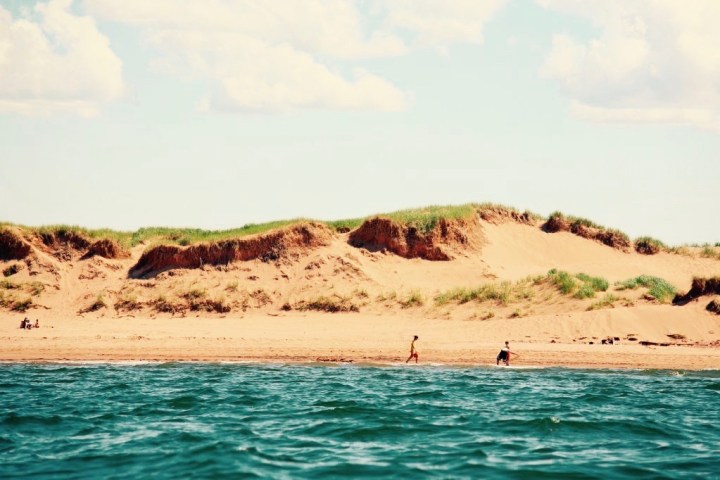A breath appears as nothing more than a mere puff of air, does it not? And yet it would be a mistake to believe it is as simple as that. Just as many parts of the body must work together, in harmony, to create a breath, so must many parts work together to create a human. Like a breath, a human may appear simple, but there is much more to being human than meets the eye.
One who is truly human is noble.
For me, the word noble has at long last been resurrected from the historical museum, removed from among the rusted swords and breastplates, polished, and set on a pedestal in the centre of the world, of my being. I now understand that to be noble is to be whole and healthy in body, mind, and soul—a work of art, as Aristotle wrote.
For me, nobility can be expressed in three ways: kombucha, splurging, and prayer.
Kombucha. Within the confines of our little apartment in the countryside, I’ve delved heart-first into several traditional ways of preparing food that have been tossed out the window by comfortable, convenient North America. What a joy it is to create my own kombucha, kimchi, and sourdough; not only is it satisfying and economic, but also far more nutritious than our ancestors could have known. Yes, I am shamelessly passionate about food as it was—that is, in the days before the food industry was corrupted. Not long ago, humanity danced with the earth. But now we hear the earth crying out as we rape precisely what we were given to nurture and protect. And in betraying the earth, we’ve betrayed our bodies as well.
But even if my body is whole and healthy and I appear to be thriving, if my mind is malnourished, I am no less sick than the obese man down the street—just not in the same way.
Splurging. I have always struggled with an all-or-nothing mentality. Ah, how much easier it is to say no every time to a certain something than to repeatedly step back and discern in this particular moment if it might be better to say yes, even if yesterday it was better to say no. Contrary to what some may believe (as I myself have often believed), that is not compromise, but prudence—because nobility requires balance. And to balance a scale, one must weigh between goods. What is good for me in this moment? To splurge on cheesecake or not? Do I need to practice temperance and say no, or practice gratitude/loosen up/slay vanity/make a sweet memory and say yes? If saying no this time foments anxiety, resentment, or division (as I have experienced), my mind is now suffering, and probably my soul too—and thus my very humanity. Such is why it may be better to splurge on cheesecake today, even if yesterday it was better to say no and take a hike instead.
Maybe you are wondering: How I can be still be whole and healthy in every way if my mind is nourished but my body is not? Today, during weekday Mass, I was reflecting on the fact that Christ gave up His body for us. Being beaten, scourged, and crucified was certainly a detriment to His physical health. And what about severe fasting? What about the saints who mortified themselves?
Well, the simple truth is that everything we are—body, mind, and soul—exists for Love. Our bodies are for more than the perfect balance of muscle, fat, and nutrients, etc. They are for more than comfort. You may or may not ace a checkup at the doctor’s office—what matters is that you are able to serve Love. Maybe the doctor is right—maybe you do need to eat less junk—but this is that you may better serve Love. How much belly fat, then, is too much? Simply, that is between you and God. Consider: too much junk can lead to addictions, debilitating symptoms, and even premature death. Maybe we often fail at sticking to a clean diet and exercise because our only motivation is to lose weight and feel better—which often doesn’t hold up when faced with a choice between cheesecake or an apple and you’re asking yourself why it’s that important to have a trim waistline and more energy—but what about loving better?
With this is mind, we are indeed called to care for our temples—but as soon as we begin caring too much, we have begun worshiping the temple itself and not God who dwells within. My body is not only a receptor for nutrients, but also a conduit for grace. I am called to use my body to serve the poor, not to serve my body over the poor. Yes, we exist for Love.
Prayer. I cannot determine the balance on my own. God alone knows how to weigh the goods on the scale. He is always there, standing over my shoulder like a father tutoring his child in the family trade. If I try to proceed without Him, I will inevitably make the wrong decision—or I will not be able to make a decision at all (blasted scrupulosity). I know then that my soul is starving. Prayer—communication between the mortal and the Immortal—is the food of the soul and served in many forms. Often, God will speak to me through my beloved husband or through Scripture, and sometimes through a saint’s quote. Always, whether using words or not, He speaks through peace. I truly believe peace is the compass of the soul. If my soul is restless, I know God is urging me to add a little more this or a little less that until the balance is struck.
Like kombucha, nobility is not a thing of the past, of medieval knights and crowned queens, but of every human who desires to be who they truly are.











